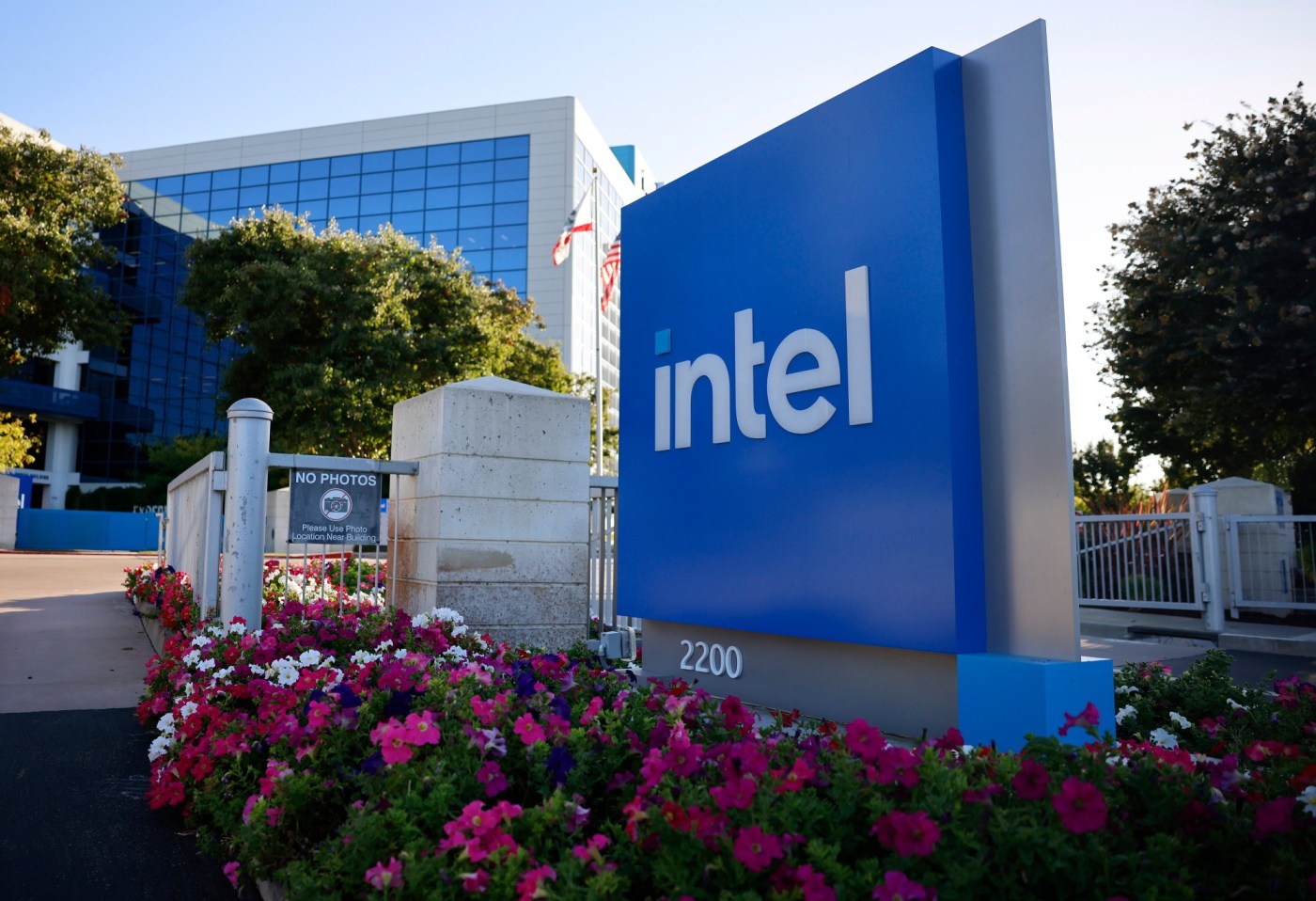
By Ryan Gould and Liana Baker, Bloomberg
Intel Corp. has approached Apple Inc. about securing an investment in the ailing chipmaker, according to people familiar with the matter, part of efforts to bolster a business that’s now partially owned by the US government.
Apple and Intel also have discussed how to work more closely together, said the people, who asked not to be identified because the deliberations are private. The talks have been early-stage and may not lead to an agreement, the people said.
Related Articles
Nvidia to invest $5 billion in Intel; companies will work together on AI infrastructure and PCs
After Trump announcement, Intel among several companies to make Bay Area job cuts
Intel agrees to give US a 10% stake in company, Trump says
Intel’s $24 billion rally sends valuation to dot-com levels
Trump thinks owning a piece of Intel would be a good deal for the US. Here’s what to know
Shares of Intel rose 6.4% to $31.22 on Wednesday in New York after Bloomberg News reported on the discussions. Apple closed down less than 1% at $252.31.
Such a deal would follow a $5 billion investment last week by Nvidia Corp., which plans to work with Intel on chips for personal computers and data centers. SoftBank Group Corp., the Japanese tech giant seeking to expand further in the US, announced a $2 billion investment in Intel last month.
Intel also has reached out to other companies about possible investments and partnerships, the people said.
A deal with Apple, a longtime Intel customer that switched to in-house processors in the past five years, would represent further validation of the chipmaker’s turnaround bid. Still, it’s unlikely that Apple would switch back to Intel processors in its devices. The iPhone maker’s most sophisticated chips are now produced by partner Taiwan Semiconductor Manufacturing Co.
A representative for Intel declined to comment. An Apple spokesperson didn’t respond to a request for comment.
Intel Chief Executive Officer Lip-Bu Tan is attempting a comeback with the backing of the federal government. In an unconventional deal brokered by the Trump administration in August, the US acquired a roughly 10% stake in the chipmaker. Intel is seen as a critical piece of efforts to reinvigorate domestic production — a priority for the White House.
Even with financial support, Intel’s challenges remain daunting. The Santa Clara, California-based company has lost its long-held technological edge and ceded market share to rivals such as Advanced Micro Devices Inc. Moreover, Intel has struggled to capitalize on booming sales of artificial intelligence gear — a specialty of Nvidia.
Once the dominant chipmaker, Intel now has a fraction of Nvidia’s sales and market capitalization. It also has laid off workers and delayed factory expansion plans to cope with its deteriorating finances.
Still, investors have grown more optimistic about its prospects since the government infusion. The stock is up more than 60% since the beginning of August.
Under former CEO Pat Gelsinger, Intel set out to become a chip foundry — a business that makes semiconductors for outside clients. But the company has struggled to secure enough customers to support its factory expansion plans.
Intel has continued to pursue the foundry strategy under Tan, though more cautiously. He said in July that Intel would only roll out a new cutting-edge production technique — called 14A — if customers committed to it.
Apple and Intel have a long, sometimes strained history together. Apple used Intel chips in its Macs for years but began shifting away from the supplier in 2020 — part of a broader effort to use more in-house components. Apple also acquired most of Intel’s modem chip business in 2019.
These days, Apple has sought to show that it’s investing heavily in the US — even as much of its production remains overseas. At a White House event in August, the company announced plans to spend $600 billion on domestic initiatives over a four-year period, up from a previous pledge of $500 billion. The centerpiece of the expansion was a $2.5 billion investment in Corning Inc., Apple’s longtime glass supplier.
Apple CEO Tim Cook told CNBC’s Jim Cramer that the investments would encourage other companies to add US production, creating a “domino effect.”
When asked about Intel, he said that competition would be good for the chip foundry industry. “We’d love to see Intel come back,” Cook said.
–With assistance from Mark Gurman, Ian King and Mackenzie Hawkins.
More stories like this are available on bloomberg.com
©2025 Bloomberg L.P.